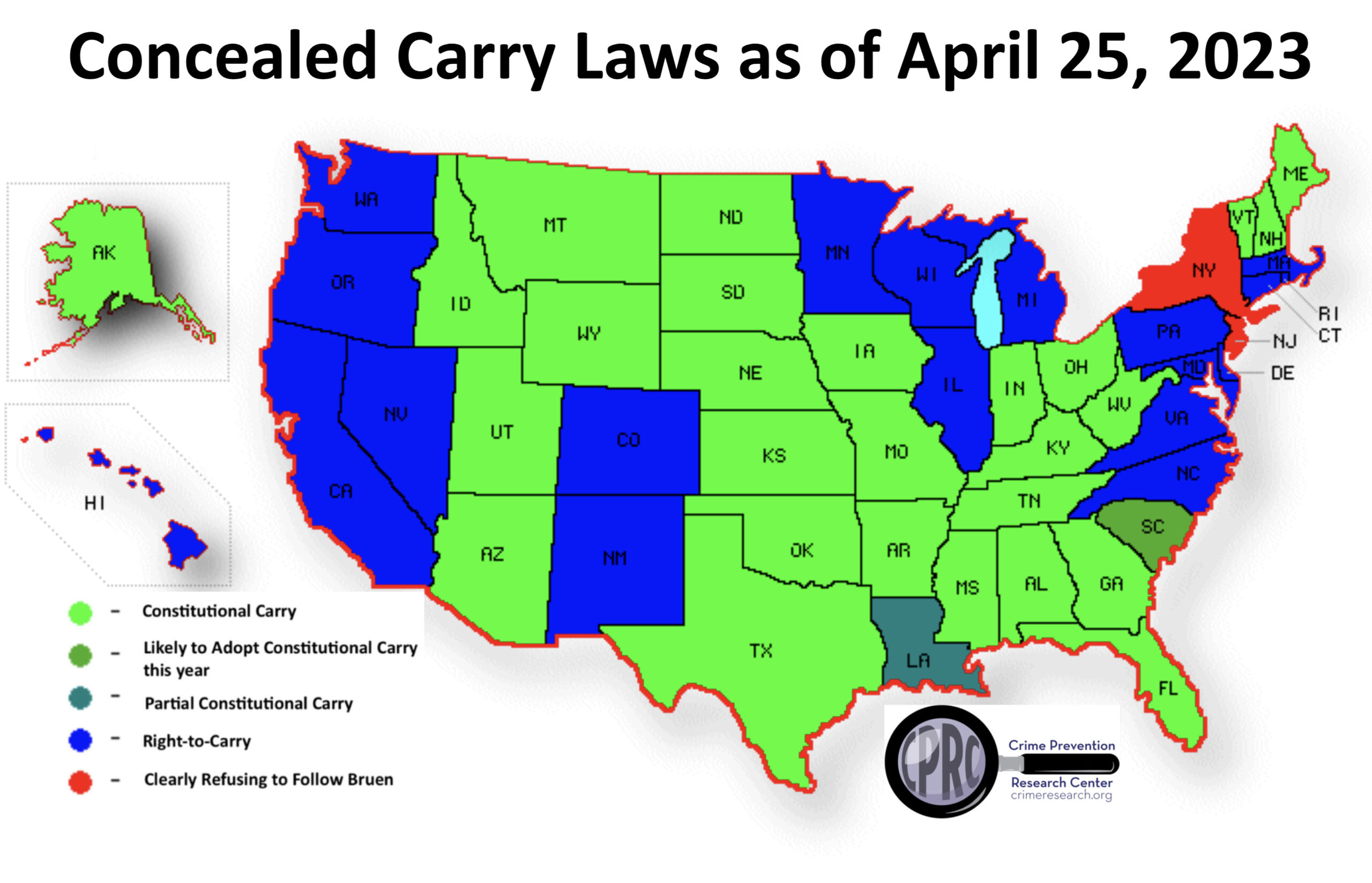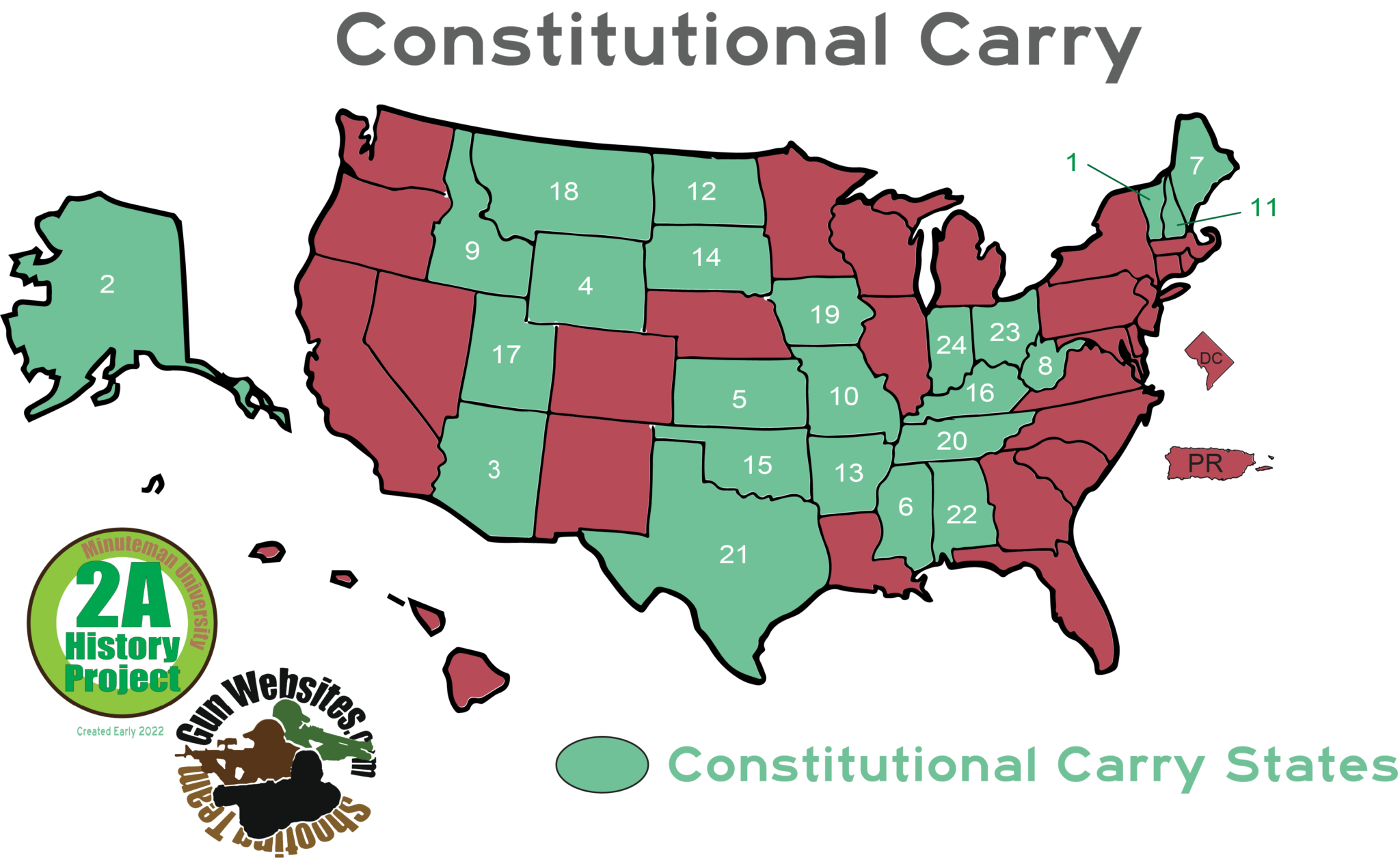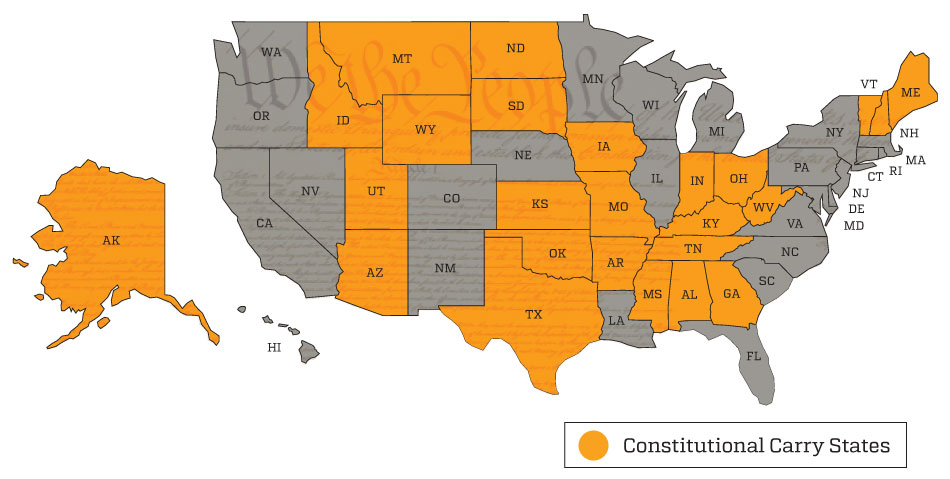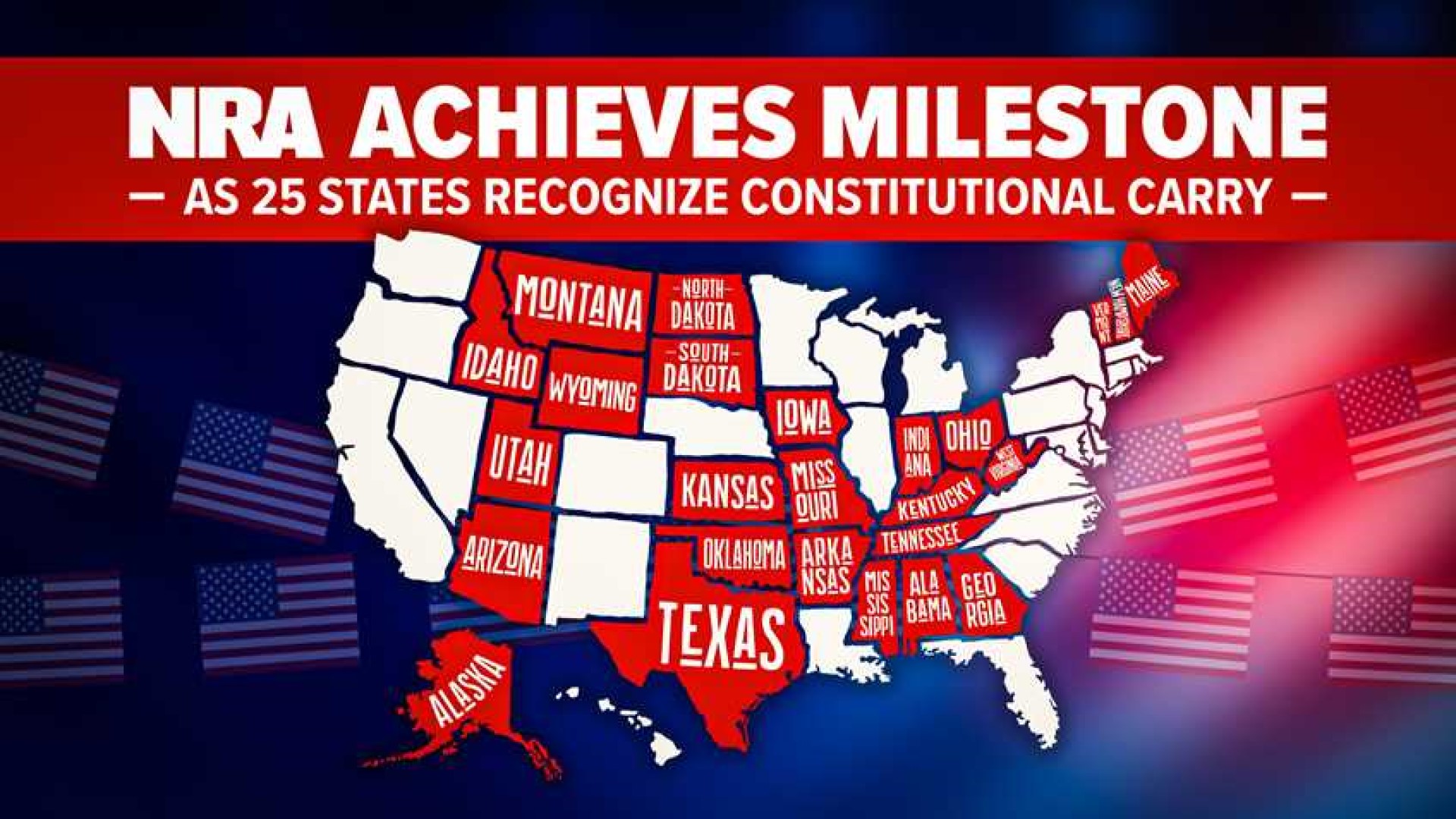The Evolving Landscape of Constitutional Carry: A State-by-State Guide
Related Articles: The Evolving Landscape of Constitutional Carry: A State-by-State Guide
Introduction
In this auspicious occasion, we are delighted to delve into the intriguing topic related to The Evolving Landscape of Constitutional Carry: A State-by-State Guide. Let’s weave interesting information and offer fresh perspectives to the readers.
Table of Content
The Evolving Landscape of Constitutional Carry: A State-by-State Guide

The concept of "constitutional carry," also known as "permitless carry," has become a significant topic in the realm of gun rights and regulations. This legal framework allows individuals to carry concealed firearms without the requirement of a permit or license. The implementation of constitutional carry laws varies across the United States, creating a complex and dynamic landscape of regulations. This article provides a comprehensive overview of constitutional carry laws, examining their implications, benefits, and ongoing debates.
Understanding Constitutional Carry
The foundation for constitutional carry lies in the Second Amendment of the United States Constitution, which states: "A well regulated Militia, being necessary to the security of a free State, the right of the people to keep and bear Arms, shall not be infringed." Proponents of constitutional carry argue that this amendment guarantees the right to carry a firearm for self-defense without government interference.
Constitutional Carry Laws: A State-by-State Breakdown
As of November 2023, twenty-five states have enacted constitutional carry laws, while others are actively considering similar legislation. This map demonstrates the evolving landscape of gun rights across the country:
Constitutional Carry States:
- Alabama
- Alaska
- Arizona
- Arkansas
- Idaho
- Iowa
- Kansas
- Kentucky
- Louisiana
- Maine
- Mississippi
- Missouri
- Montana
- Nebraska
- New Hampshire
- North Dakota
- Ohio
- Oklahoma
- Rhode Island
- South Dakota
- Tennessee
- Texas
- Utah
- Vermont
- Wyoming
States with Constitutional Carry Legislation Under Consideration:
- Florida
- Georgia
- Indiana
- Michigan
- Pennsylvania
- South Carolina
- Virginia
- West Virginia
States with Permit Requirements for Concealed Carry:
- California
- Colorado
- Connecticut
- Delaware
- Hawaii
- Illinois
- Maryland
- Massachusetts
- Minnesota
- Nevada
- New Jersey
- New Mexico
- New York
- North Carolina
- Oregon
- Pennsylvania
- Washington
- Washington, D.C.
Arguments for Constitutional Carry
Supporters of constitutional carry cite several key arguments in favor of its implementation:
- Second Amendment Rights: They maintain that the Second Amendment guarantees the right to carry a firearm for self-defense without government interference. They argue that permitting requirements infringe upon this fundamental right.
- Self-Defense: Proponents believe that individuals have a right to protect themselves and their families from harm. They argue that constitutional carry empowers individuals to exercise this right effectively.
- Deterring Crime: Some proponents suggest that constitutional carry can deter crime by increasing the potential for armed resistance against criminals.
- Individual Responsibility: Constitutional carry advocates believe that individuals should be responsible for their own safety and security. They argue that permitting requirements create an unnecessary layer of government bureaucracy.
Arguments Against Constitutional Carry
Opponents of constitutional carry raise concerns about the potential consequences of such laws:
- Increased Crime: Critics argue that constitutional carry could lead to an increase in violent crime, as more individuals may be carrying firearms in public.
- Accidental Shootings: They express concerns about an increase in accidental shootings, particularly among untrained individuals.
- Unintended Consequences: Opponents worry about the potential for unintended consequences, such as the escalation of minor conflicts into violent confrontations.
- Public Safety: They emphasize the importance of background checks and training requirements to ensure public safety.
The Debate on Constitutional Carry
The debate surrounding constitutional carry is complex and multifaceted, with strong arguments on both sides. It touches on fundamental issues of individual rights, public safety, and the role of government in regulating firearms.
FAQs on Constitutional Carry
1. Is Constitutional Carry Legal in My State?
To determine if constitutional carry is legal in your state, refer to the list provided above or consult your state’s official website.
2. What Are the Requirements for Constitutional Carry?
In states with constitutional carry, individuals may be required to meet certain criteria, such as age restrictions, background checks, or training requirements. These requirements vary by state.
3. Are There Any Restrictions on Where I Can Carry a Concealed Firearm Under Constitutional Carry Laws?
While constitutional carry laws generally allow individuals to carry concealed firearms without a permit, there may be restrictions on carrying firearms in certain locations, such as schools, government buildings, or private businesses.
4. What Happens If I Carry a Concealed Firearm Without a Permit in a State That Does Not Have Constitutional Carry?
Carrying a concealed firearm without a permit in a state that requires permits is illegal. Violators may face fines, imprisonment, or other penalties.
5. How Can I Learn More About Constitutional Carry Laws in My State?
You can find information on constitutional carry laws in your state by visiting your state’s official website, contacting your local law enforcement agency, or consulting with an attorney.
Tips for Responsible Gun Ownership
Regardless of the legal status of constitutional carry in your state, responsible gun ownership is crucial for ensuring public safety. Here are some tips for responsible gun owners:
- Know the Law: Understand the laws governing firearms in your state, including those related to concealed carry, storage, and use.
- Practice Safe Handling: Learn proper gun handling techniques and practice them regularly.
- Store Guns Securely: Keep firearms locked up and out of reach of children and unauthorized individuals.
- Seek Training: Consider taking a firearms safety course to enhance your knowledge and skills.
- Be Responsible: Use firearms responsibly and ethically.
Conclusion
The ongoing debate surrounding constitutional carry reflects the evolving landscape of gun rights in the United States. The implementation of constitutional carry laws varies significantly across states, creating a complex and dynamic legal framework. As the debate continues, it is crucial for individuals to understand the legal implications, potential benefits, and concerns associated with constitutional carry in their respective states. Responsible gun ownership, regardless of legal regulations, remains a vital aspect of ensuring public safety and protecting individual rights.








Closure
Thus, we hope this article has provided valuable insights into The Evolving Landscape of Constitutional Carry: A State-by-State Guide. We thank you for taking the time to read this article. See you in our next article!